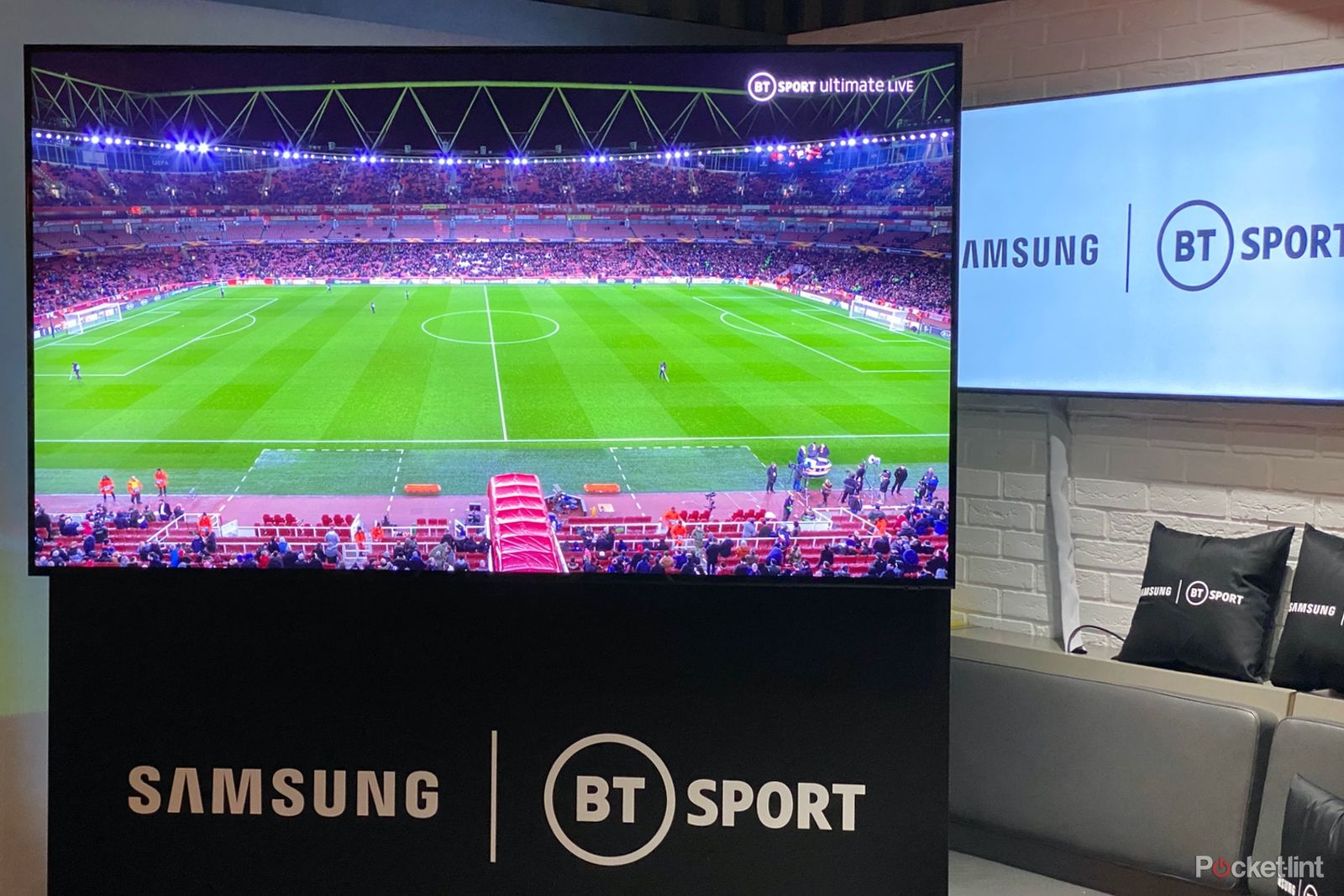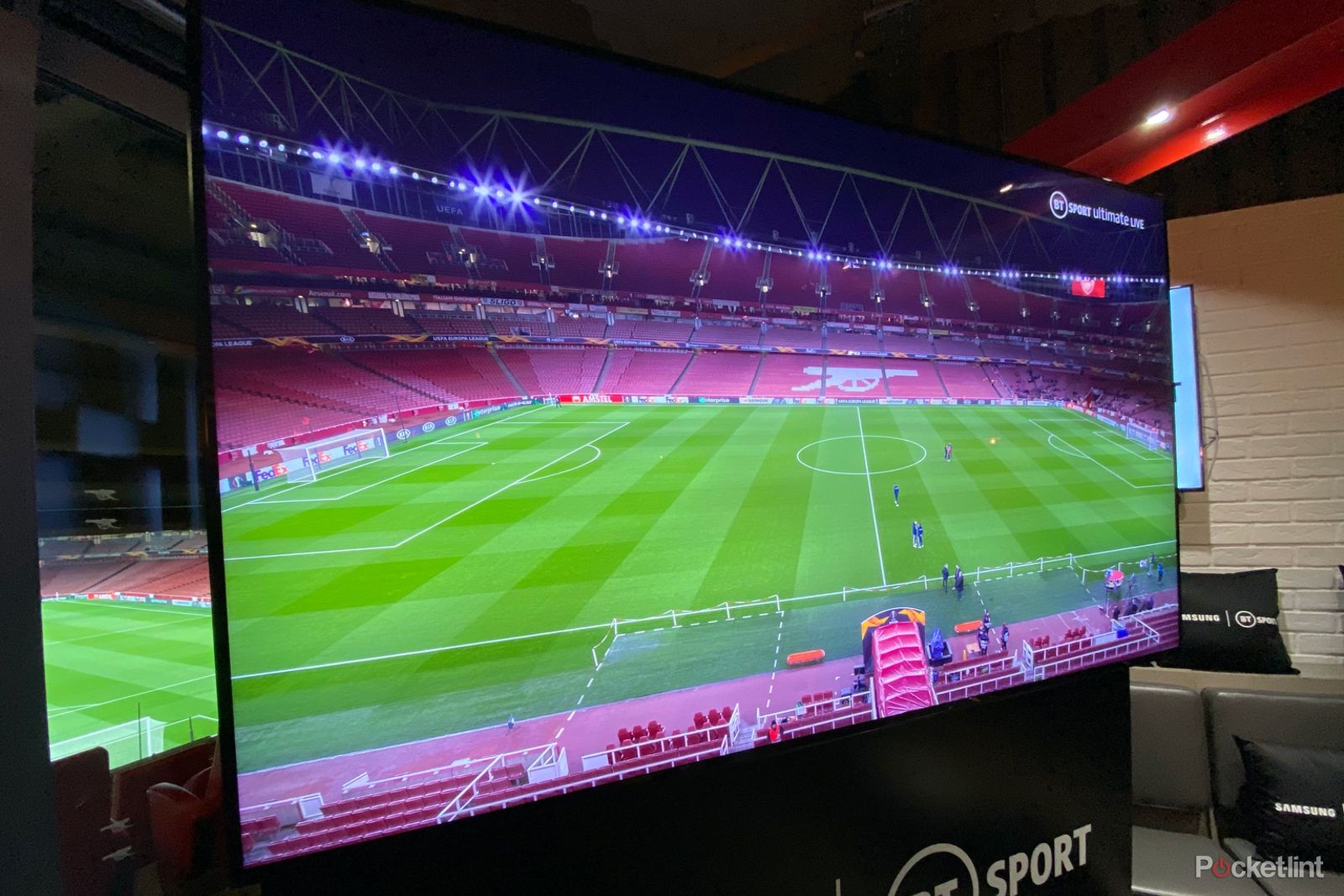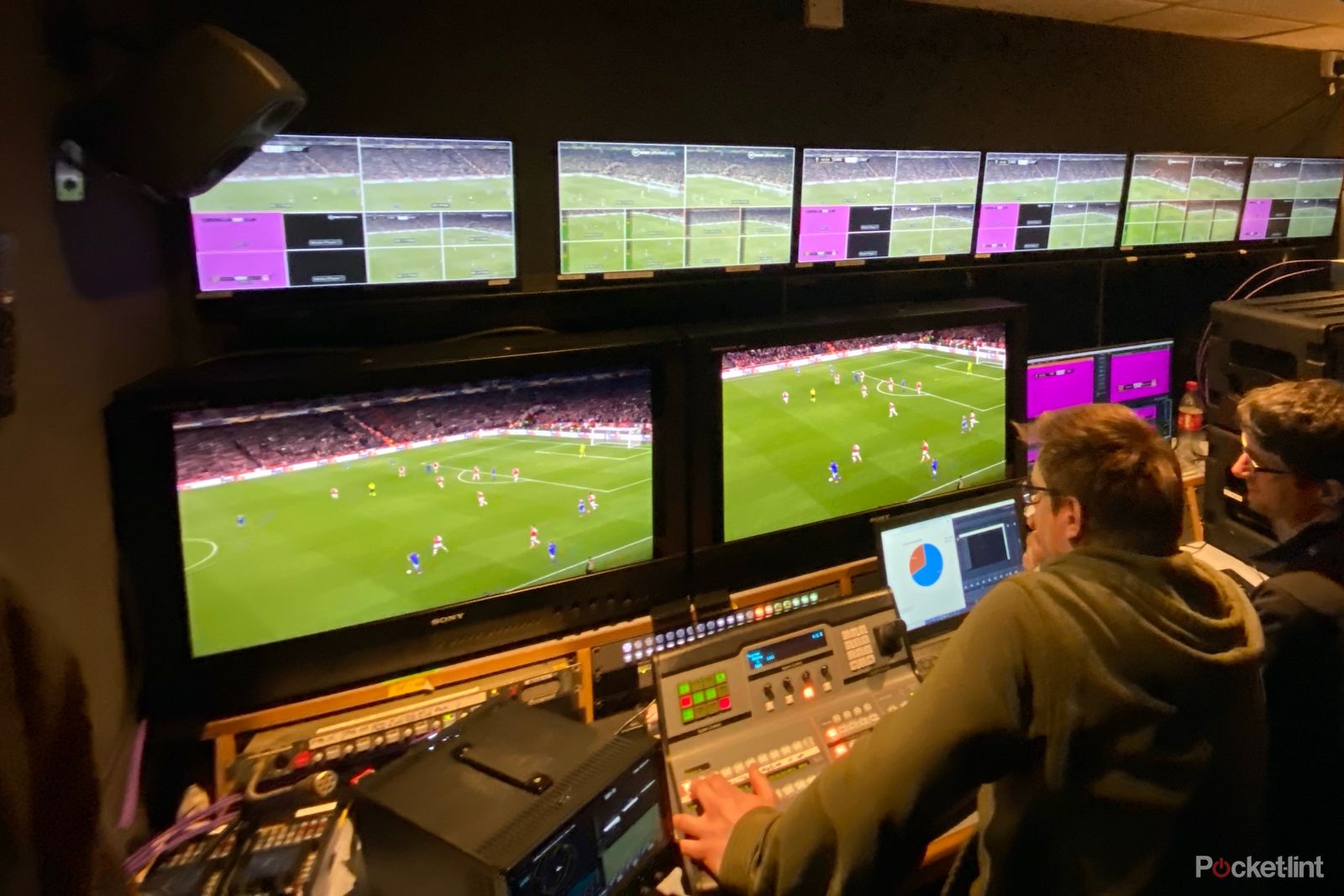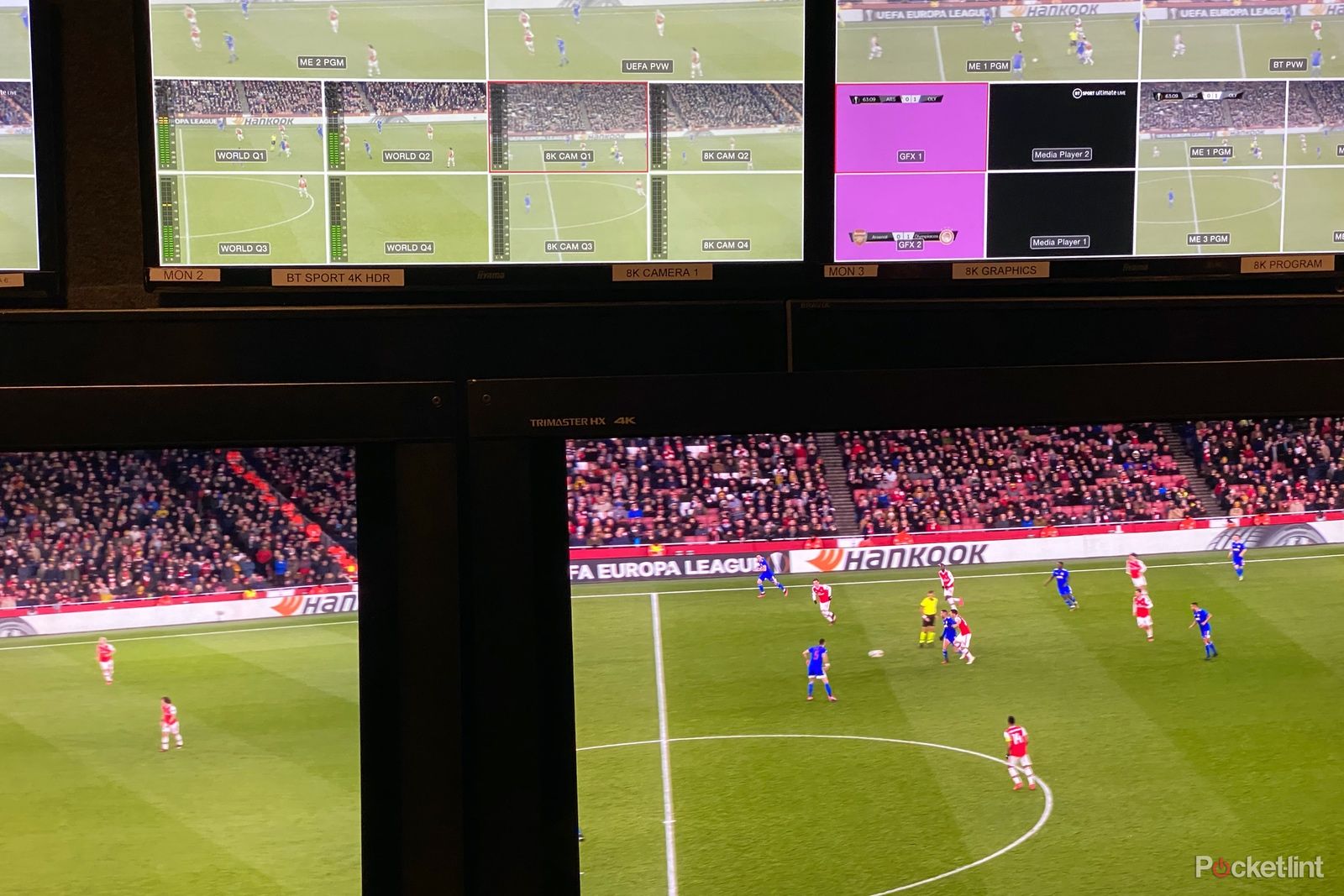Sport has long been a driver of TV upgrades for large swathes of the public. Whether it was the jump to HD years ago or the allure of 4K for many people right now, few broadcasts better show the benefits of picking up a new TV than a game of football.
BT Sport and Samsung clearly know that full well, because they've just jumped ahead of the competition by showing off a proof-of-concept broadcast of Arsenal's Europa League game against Olympiakos, broadcast live to an absolutely stonking QLED 8K display in one of the Emirates Stadium's boxes. We were there to check it out, and were suitably impressed.
Is it way better than 4K?
How much of a leap forward does 8K represent, then? In all honesty, it depends where you're coming from. On the one hand, this live feed was the crispest we've ever seen football look on screen, and compared really favourably in direct comparisons to 4K. No matter how close you pushed your nose up to the screen, pixellation was nowhere to be found, and the vibrancy of the colours made for a superb viewing experience all round. If we had the opportunity to watch football this way every week we'd pounce on it.
That said, it remains the case that native 8K content is extremely thin on the ground, with BT Sport unlikely to broadcast it widely for a while yet, and the cost of an 8K TV remains seriously expensive by most people's standards. Was this better than 4K? Yes, for sure. Was it better enough to make it worth ditching a solid 4K model to upgrade? Not quite, for our money.
The reality is that all this video comes at a serious data hit, too. BT Sport estimates that you'll want a connection of at least 80MB/s to reliably stream 8K video like this, which it's fair to say not everyone has in their locker (or modem). By comparison, the current requirement for BT Sport's 4K HDR broadcasts is 30MB/s (or 25MB/s for non-HDR).
A bespoke setup
The technical setup to get this broadcast running is still very much at the developmental stage - as we were shown, this is a unique rigging job that has to be done every time BT Sport want to experiment with 8K, and which takes about a full day to get ready before the match. In this case, that 8K TV was the only screen in the stadium actually being sent the feed we were watching.
It was all being captured by hugely valuable cameras and upscaled and chopped up by a dedicated team down in the TV enclosure, in the stadium's bowels. We were basically watching four 4K streams chopped together onto one screen, as rudimentary as that sounds.
That takes a big chunk of processing power, and indeed storage - BT Sport estimates that a normal game runs to about 1.2TB of video data, so large are the file sizes involved. Of course, in this case Arsenal contrived to go to extra time (we won't mention the full-time result), so that's even more to contend with.
BT Sport says that the tech is looking really solid, though, and that their hope is to have it up and running for the actual public, through their viewing app on their BT Sport Ultimate package, in the near future. At this stage of the year, though, that's looking like it means the start of next season, in August.
Anyone who's used Sky's Now TV player will know that there's value to be had in BT pursuing these technical leaps forward - being able to get 4K and HDR content, plus Dolby Atmos sound, does make a big difference if you're regularly watching football at home.
For now, as a proof of concept, it was a winning one, and while it might be a while before living rooms around the country are actually watching footie with this level of fidelity, we'd still call it an exciting look at what the future holds for football fans.




